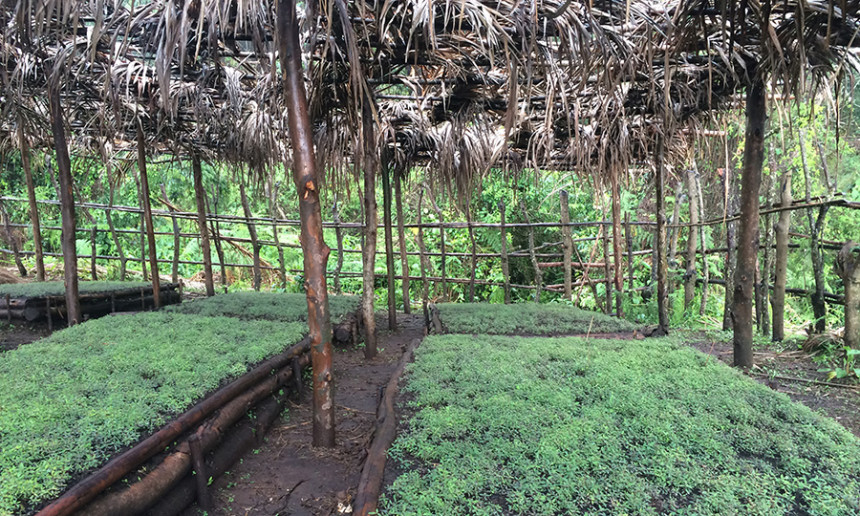The overall objective of the organic project is to improve food security in the rural households by creating a sustainable environmental and friendly approach to agriculture and health.
- The restoration of soil fertility and soil structure by collecting and applying animal droppings and compost to the field crops.
- Training farmers and families in organic technologies so that they acquire new skills.
- Train and encourage farmers on crop diversification and backyard gardens.
- Exchange visit by all who are interested in organic farming. RUDEC advocates organic farming because this is better for the environment, and also easier for the community to achieve, than more intensive farming methods. People and groups who practice organic farming do not have to buy chemical pesticides and fertilizers to help grow their crops, leaving precious funds available to buy basic necessities.
- RUDEC also promotes organic farming practices because these reduce pollution in the environment, as well as in the community.RUDEC is encouraging the use of organic manure from animals by giving guinea pigs to families, so that farmers can use droppings from the guinea pigs, and their other animals, as natural fertilizers. Furthermore, RUDEC encourages farmers to plant agro-forestry trees that will provide nutrients for crops and litter manure to the soil. RUDEC also supports the use of natural plant-based insecticides. In addition to the above initiatives, RUDEC is promoting the cultivation of medicinal plants for the treatment of endemic diseases that are problematic in Cameroon. It is hoped that this will encourage people to look for natural medicinal plants in their backyards to cure some common illnesses. RUDEC demonstrates organic farming techniques in its own practical garden, to serve as a model for the community to emulate. Information about practices is also spread through group sensitization meetings and training events. RUDEC needs volunteers who have knowledge on organic farming, natural plants insecticide production and medicinal plants, who can help the organization achieve these objectives. Honey is known to be an effective natural medicine, used as a traditional remedy in the treatment of a wide range of illnesses. However, in many rural areas, including Belo, very few people produce honey despite the abundance of available space in which to build hives.
Bee Keeping
RUDEC’s beekeeping program aims to:
- Build the capacity of communities in modern bee farming techniques and in production of bee by-products
- Train rural people on the practice of modern beekeeping and apiculture techniques to increase honey production
- Solve the problems encountered by bee farmers with respect to hive transfer, colonization, colony division, harvesting, apiary designing, processing of honey, hive equipment and hive by-products
RUDEC provides Internships on Practical Beekeeping in Africa; More than 200 beekeepers have already benefited from RUDEC’s beekeeping program, from Banyang-Mbo in the South Wet Province, to Baicham in Belo Subdivision. You can help through volunteering by learning about beekeeping and participating in this project, or by sharing your knowledge of beekeeping with RUDEC and the rural community to improve this venture.


Leave a Reply